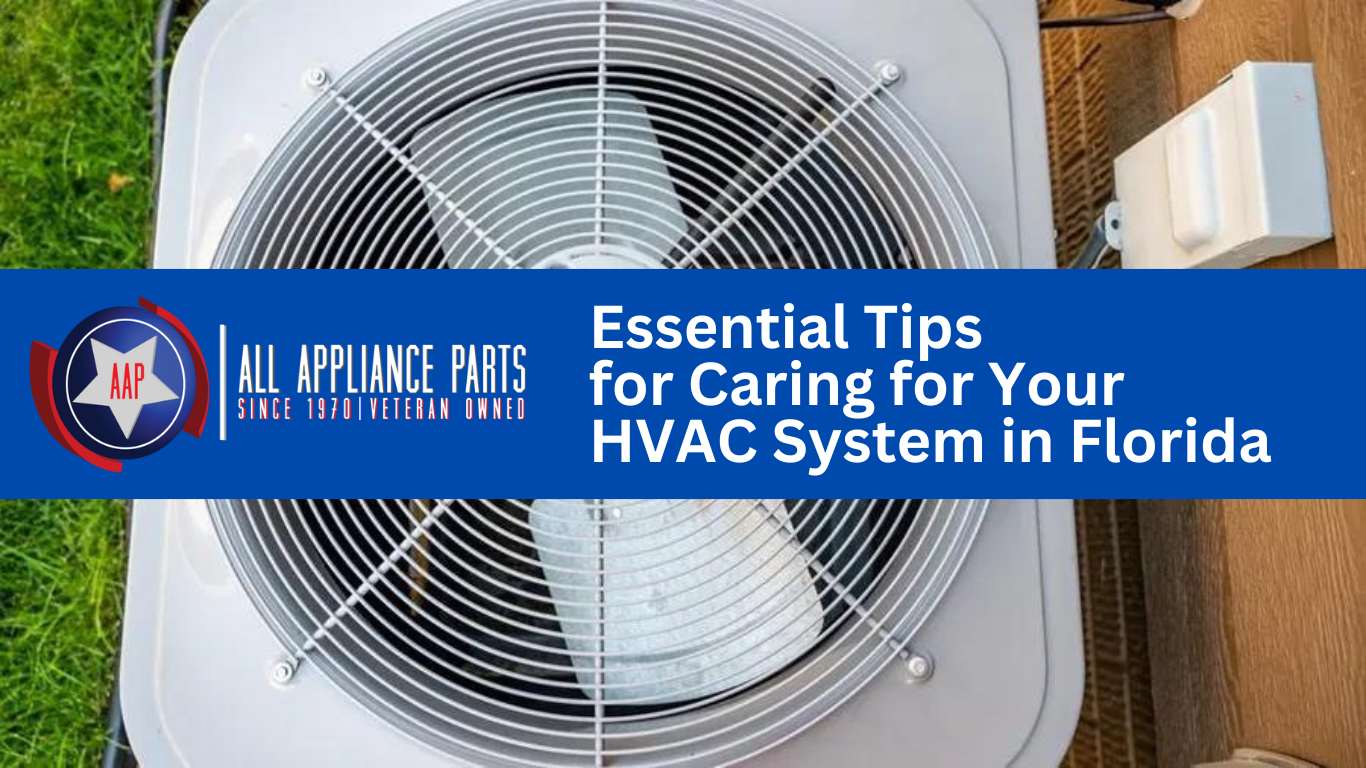Florida’s hot and humid climate poses unique challenges for HVAC systems. To keep your home comfortable and ensure your HVAC system operates efficiently, it’s crucial to implement specific maintenance strategies. Following these essential tips can optimize your HVAC system’s performance, save energy, and prevent breakdowns.

Keep the humidity under control
Florida is known for its high humidity levels, which can make your home feel uncomfortable and strain your HVAC system. Invest in a dehumidifier to maintain optimal humidity levels, especially during the summer months. This will not only enhance your indoor comfort but also alleviate the burden on your HVAC system.
Keep the outdoor unit clean
In Florida, the outdoor unit of your HVAC system can accumulate dirt, debris, and even salt from the ocean air. Regularly clean the unit to prevent damage and ensure optimal performance. Remove any obstructions around the unit, such as leaves or vegetation, and rinse it with water to remove built-up grime.
Schedule maintenance twice a year
Due to the warm and humid climate, HVAC systems in Florida work harder and require more maintenance. Schedule professional maintenance twice a year to ensure your system operates efficiently and to identify and address potential issues before they become major problems. Regular maintenance will extend the lifespan of your system and help you avoid costly repairs.

Use ceiling fans
Ceiling fans can complement your HVAC system by helping to distribute cool air more evenly throughout your home. By using ceiling fans in conjunction with your HVAC system, you can reduce the workload on the system and save energy. Ensure that your fans are set to rotate counterclockwise during the summer to create a cooling breeze.
Consider upgrading to a more efficient system
If your HVAC system is over a decade old, it may be time to consider upgrading to a more efficient model. Modern systems are designed to provide superior energy efficiency, resulting in lower utility bills and better performance. Consult with a professional HVAC technician to determine the most suitable system for your home.

Seal and insulate your home
Proper insulation and sealing are essential in Florida’s hot and humid climate. Insulate your attic, walls, and windows to prevent heat transfer and reduce the workload on your HVAC system. Seal any air leaks around doors, windows, and ductwork to keep the cool air inside and prevent hot air from infiltrating your home.
Set your thermostat wisely
Optimize your cooling costs by setting your thermostat at an energy-efficient temperature. However, avoid setting it too high when you’re away from home, as it may take a long time to cool down your house once you return. Consider using a programmable thermostat that can automatically adjust the temperature based on your schedule, ensuring comfort and energy savings.
Provide shade for your outdoor unit
The Florida sun can be intense and affect the performance of your outdoor HVAC unit. Install an awning or plant trees strategically to provide shade for the unit. By reducing direct exposure to sunlight, you can enhance the efficiency of your HVAC system and prolong its lifespan.
Consider a zoning system
Florida homes often have varying cooling needs in different areas. A zoning system allows you to divide your home into different zones and control the temperature independently in each zone. This can help optimize comfort and reduce energy consumption by avoiding overcooling unoccupied areas.
Regularly change air filters

Florida’s dusty environment can quickly clog air filters, hindering airflow and straining your HVAC system. Check and change your air filters regularly, following the manufacturer’s recommendations. This simple task will maintain proper airflow, improve indoor air quality, and prevent unnecessary strain on your system.
Install UV lights

Florida’s high humidity levels can contribute to mold and mildew

